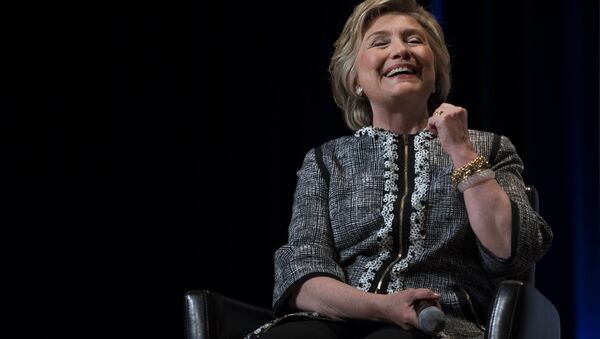"You have not sufficiently demonstrated that the public’s interest in disclosure outweighs personal privacy interests of the subject," FBI Records Director David Hardy told Ty Clevenger in a letter dated August 28, 2017.
Despite a storied career in the public eye for decades as secretary of state, two-time presidential candidate, senator of New York, and for eight years first lady of the US, Hardy and the FBI found that Clinton’s communications stored on a private email server still don’t fall within the public interest — even though she was a public servant at the time she used the shadowy servers.
Clevenger told the Washington Times that including documentation proving the public interest was superfluous for the Freedom of Information Act request, but that he attached such documents to his request to preempt a "public interest" rejection.
Specifically, the Brooklyn-based attorney said that he cited a letter by former House Oversight and Government Reform Committee Chairman Jason Chaffetz to the US Attorney for the District of Columbia dated August 15, 2016.
Chaffetz’s letter alleged that, based on the FBI’s investigation into Clinton’s infamous private servers, "several pieces" of Clinton’s Benghazi testimony on October 22, 2015 "appear to implicate … the criminal statutes that prohibit perjury and false statements."
"How can a story receive national news coverage and not be a matter of public interest?" Clevenger pondered rhetorically in an interview with the Times. He can file an appeal or seek dispute resolution services, according to the FBI.
In a separate front on the pursuit to tear down the curtain hiding Clinton’s emails, conservative watchdog Judicial Watch is slated to receive a tranche of state.gov emails from the State Department by September 22 following a court order.




